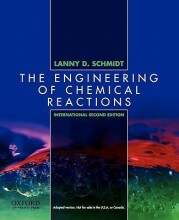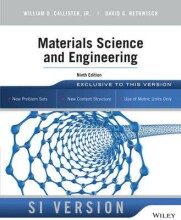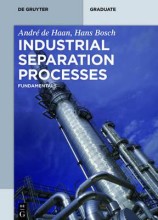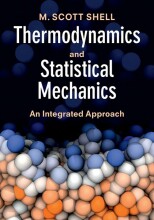Summary: The Engineering Of Chemical Reactions | 9780195392081 | Lanny D Schmidt
- This + 400k other summaries
- A unique study and practice tool
- Never study anything twice again
- Get the grades you hope for
- 100% sure, 100% understanding
Read the summary and the most important questions on The Engineering of Chemical Reactions | 9780195392081 | Lanny D. Schmidt
-
1 Introduction
-
1.1 Chemical Reactors
-
What is the purpose of separation units?
The purpose of separation units is to purify raw materials before entering a chemical reactor and to purify the products after production. -
How do improvements in the reactor reduce production costs?
When the reactor can handle more impure raw materials and less by products are produced the costs of separation can be strongly decreased -
What are the three major challenges in chemical engineering?
I. Searching for alternate processes to replace old ones.
II. Finding ways to make a product form different feedstock.
III. Reducing or eliminating a troublesome byproduct. -
1.2 Chemical Reaction Engineering
-
Why were continuous reactors not constructed until the industrial era?
From the industrial era onward people wanted to produce more than they themselves needed and thus large scale reactors were developed. -
When and where was the systematic consideration and mathematical modeling of chemical reactors developed?
The systematic approach started in the 1930s in Germany. -
1.3 What Do We Need To Know?
This is a preview. There are 1 more flashcards available for chapter 1.3
Show more cards here -
What is the ideal path of designing a chemical reactor?
1. Bench-scale batch reactor
2. Bench-scale continuous reactor
3. Pilot plant
4. Operating plant -
What is hoped to be obtained in a bench-scale batch reactor?
The conversion, selectivity and kinetics. -
What is hoped to be obtained from a bench-scale continuous reactor?
The operating conditions and catalyst formulation. -
What are the typical tasks of a chemical engineer?
1. To maintain and operate a process.
2. To fix some percieved problems.
3. To increase capacity or selectivity at a minimum cost. -
1.4 Industrial Processes
This is a preview. There are 1 more flashcards available for chapter 1.4
Show more cards here -
What are the major processes in the petroleum and chemical industry?
1. Petroleum refining
2. Commodity chemicals
3. Fine chemicals
4. Food processing
5. Materials
6. Pharmaceuticals
- Higher grades + faster learning
- Never study anything twice
- 100% sure, 100% understanding
































